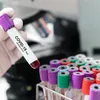Karnataka decides to get 2Cr COVID vaccine doses through global tender
Karnataka government has already placed an order for three crore COVID vaccine doses — one crore Covaxin and two crores Covishield.
The Karnataka government will procure two crores COVID vaccine doses through a global tender to meet the increased demand and to facilitate vaccination of the age group of 18-44 years, Deputy Chief Minister and state COVID Task Force Head C N Ashwath Narayan said on Tuesday.
Besides, the state has already placed an order for three crore vaccine doses — one crore Covaxin and two crore Covishield, he said.
The decision was taken at a high-level meeting he chaired, his office said in a statement.
"Till now, we had depended only on vaccines supplied by the central government, and it was not procured from the open market by a floating tender. Now, it has been instructed to float the tender and to complete the process within seven days," Narayan said.

Image Credits: Pixabay
Authorities are also instructed to procure one lakh pulse oximeters to be distributed to all the districts and taluks.
It will be the responsibility of the Distruct Health Officers and Taluk Health Officers to collect the pulse oximeters back after the infected user gets cured.
Later, these devices will be used for creating a pulse oximeter bank, he added.
Narayan said 10 lakhs of Ivermectin — a drug required to treat the infected — has been procured, and its supply will begin from May 14.
It has been further decided to procure 25 lakh tablets and make them available in all hospitals across the state.
Thirty-five lakh zinc tablets and one crore calcigen tablets will be procured and made available in all district hospitals, taluk hospitals, PHCs, and community health centres, Narayan said.
At present, Karnataka has 10.50 lakh RAT (Rapid Antigen Tests) kits in stock, which will be enough for seven days.
A total of 50,000 RAT kits are supplied every day. Besides, the state government has decided to procure 37 lakh RT-PCR kits.
The minister said triaging would be made mandatory to avoid unnecessary occupancy of beds and requested urban residents not to go to villages to get vaccinated.
Edited by Suman Singh








